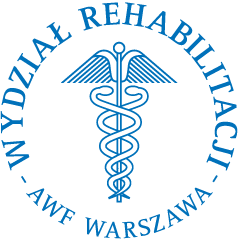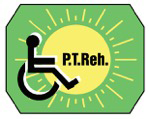


|
Current issue
Archive
Manuscripts accepted
About the journal
Editorial board
Reviewers
Abstracting and indexing
Contact
Instructions for authors
Publication charge
Ethical standards and procedures
Editorial System
Submit your Manuscript
|
4/2023
vol. 37 abstract:
Original article
Psychological resilience and parents’ engagement in paediatric physiotherapy
Anna Karolina Kloze
1
,
Aleksandra Buchholz
1
Advances in Rehabilitation, 2023, 37(4), 51–59
Online publish date: 2023/12/28
View
full text
Get citation
ENW EndNote
BIB JabRef, Mendeley
RIS Papers, Reference Manager, RefWorks, Zotero
AMA
APA
Chicago
Harvard
MLA
Vancouver
Introduction
Parental involvement in pediatric physiotherapy is a fundamental component of the family-centered paradigm and falls within the contemporary interdisciplinary model of early intervention. The active participation of parents in the therapy process augments its efficacy. The personal trait of resilience significantly increases the likelihood of parental involvement. This study aims to examine the correlation between resilience and the extent of carer involvement in a child's physiotherapy. Material and methods We conducted a survey involving 41 carers of children with developmental disabilities who were undergoing physiotherapy process. Diagnostic survey methods were employed to gather data, utilizing the following instruments: Resilience Scale 25, the Author's Survey Questionnaire for Child Carers, and the Author's Survey Questionnaire for Physiotherapists. Results The findings indicated a relationship between resilience and the level of involvement in the child's physiotherapy process. Resilience-enhancing factors such as openness to experience, a sense of humor, proactive coping strategies, and perseverance were identified as significant contributors. Conclusions Resilience can play a pivotal role in determining the degree of carer involvement in a child's physiotherapy. Parents should actively participate in the therapeutic process. Workshops to cultivate resilience should be included in the support offer, as they can enhance the prospects of therapeutic success. Trust-based, empathetic communication with the physiotherapist is vital during the rehabilitation process, fostering parental competence and instilling a sense of parental empowerment. keywords:
Children with disabilities, Carers, Rehabilitation |
    |